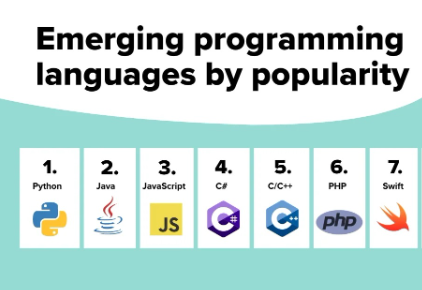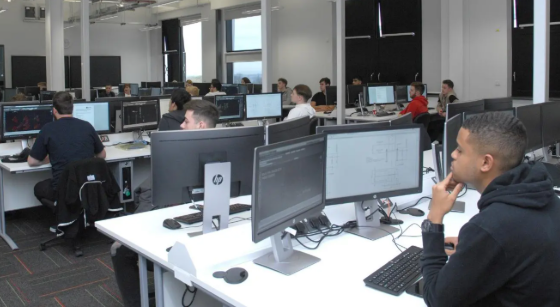
What is a Programming Language? | Explained with Real-World Examples
Introduction: Why Learn Programming Languages?
Have you ever wondered how apps like Instagram, websites like YouTube, or games like Minecraft are made? Behind the scenes, they’re built using programming languages — special languages that computers can understand.
Think of a programming language as a way to communicate with a computer, just like you use English to speak to people.
What is a Programming Language?
A programming language is a set of rules and instructions used to write software and control computer behavior.
In simple terms:
It’s how we “talk” to computers and tell them what to do — line by line.
Learn more in our related post:
What is Programming Software? Editors, Compilers & IDEs Explained
Real-World Analogy: Programming is Like Giving a Recipe
Imagine you’re teaching a robot how to make tea.
You wouldn’t just say, “Make tea!” — the robot wouldn’t understand.
You’d need to give step-by-step instructions:
- Boil water
- Add a tea bag to a cup
- Pour hot water
- Wait for 3 minutes
- Remove tea bag
- Add sugar (optional)
This is exactly what programmers do using programming languages!
Types of Programming Languages (with Examples)
Programming languages come in many forms, depending on their purpose:
| Type | Purpose | Examples |
| High-Level | Easy to read/write by humans | Python, Java, C#, Ruby |
| Low-Level | Close to machine language | Assembly, Machine code |
| Front-End (Web UI) | Design & interaction on web browsers | HTML, CSS, JavaScript |
| Back-End (Logic/Data) | Manage server, database, and logic | PHP, Python, Node.js |
You can also explore the Types of Software blog for a deeper breakdown.
Commonly Used Programming Languages
Here are a few widely used languages with what they’re best at:
- Python: Easy and powerful. Great for beginners, AI, automation, and web development.
- JavaScript: Powers websites — from buttons to animations.
- Java: Used in Android apps, banking systems, enterprise software.
- C++: For games, simulations, and performance-heavy apps.
- C#: Popular in Windows apps and Unity game development.
- PHP: Back-end web development (WordPress, Laravel).
See why Ubuntu is great for coders in Ubuntu for Students & Developers
Why So Many Languages?
Just like we use different languages in the real world (English, Spanish, Urdu), we use different programming languages depending on what we’re building.
Example:
- Want to build a website? → JavaScript + HTML + CSS
- Want to automate boring tasks? → Python
- Want to make an Android app? → Java or Kotlin
How Do You Use a Programming Language?
You usually need three things:
- A Code Editor (like VS Code)
- A Compiler or Interpreter (to convert code into something the computer understands)
- Logic – Your step-by-step instructions written in code
Example in Python:
python
print(“Hello, world!”)
This tells the computer to display the text Hello, world! on screen.
Try Installing VS Code on Ubuntu and start coding!
Programming is Problem Solving
Programming isn’t just writing code — it’s solving problems creatively.
Let’s say you want to:
- Track expenses → Build a budgeting app
- Automate homework formatting → Write a script
- Build a portfolio → Design a personal website
All of this becomes possible when you understand programming languages!
Summary
| Concept | Meaning |
| Programming Language | A way to give instructions to a computer |
| Real-world Analogy | Like giving a robot a recipe |
| Examples | Python, Java, JavaScript, C++ |
| Purpose | Build software, apps, websites, games, and automation |
Final Words
Programming languages are tools that unlock creativity, automation, and innovation. Whether you want to become a software developer, data analyst, or hobbyist coder, learning to code is your first step — and the possibilities are endless.


